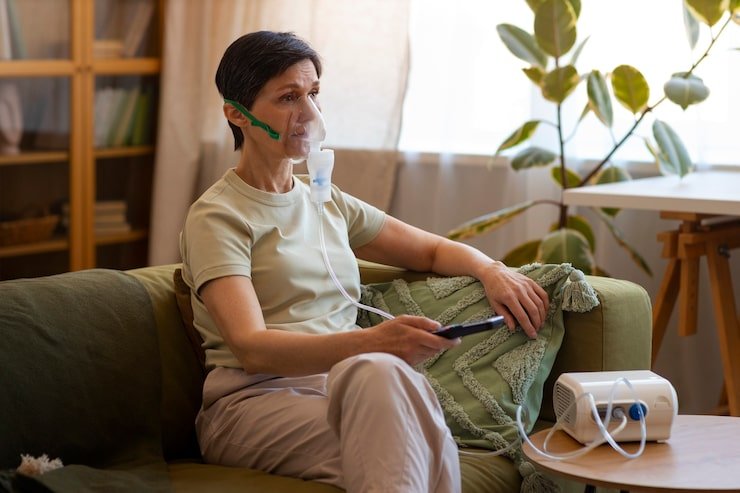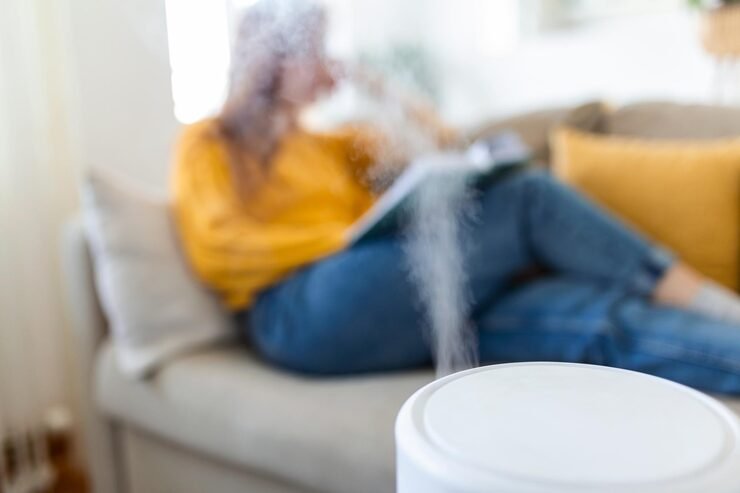Top 5 Signs Your Home Needs Air Quality Testing
- admin323029
- Blog
Your home should be a place of comfort and safety—but what if the air you breathe every day is quietly affecting your health? Most homeowners don’t realize just how crucial air quality testing is until a problem surfaces. The truth is, indoor air can be far more polluted than the air outside, especially in well-sealed homes in areas like Massachusetts and New Hampshire.
This article will help you recognize the warning signs that it’s time to schedule an air quality test. We’ll explore the top five red flags and provide practical, local advice to help you breathe easier in your home.
What Is Air Quality Testing?
Before diving into the signs, it’s helpful to understand what air quality testing actually involves. This process evaluates the levels of airborne contaminants such as:
-
Mold spores
-
Volatile Organic Compounds (VOCs)
-
Carbon monoxide
-
Radon
-
Formaldehyde
-
Allergens like pollen and dust mites
A certified professional conducts various tests using advanced equipment to assess the condition of your indoor air. In places like Boston, Melrose, Concord, and Nashua, air quality testing can identify silent threats in both older homes and newly constructed properties.
1. Persistent Health Symptoms That Don’t Go Away
One of the most common—and overlooked—signs that you need air quality testing is ongoing health issues that improve when you leave the house. Symptoms may include:
-
Headaches
-
Fatigue
-
Sinus congestion
-
Dizziness
-
Shortness of breath
If you or a family member feel better after being outside or away from home for a few hours, it’s likely your indoor air is contributing to the problem. This is especially relevant in Massachusetts winters, when we keep our windows closed and air circulation is limited. Testing your air helps pinpoint the exact cause and leads to a solution.
2. Moldy or Musty Odors
That damp, musty smell is more than just unpleasant—it’s a sign of mold or mildew. Even if you can’t see visible signs of mold, its spores may still be circulating through your air system.
Mold thrives in hidden areas: behind drywall, under floors, or inside HVAC ducts. If your home is in a coastal region of Massachusetts or near wooded areas in New Hampshire, the climate can naturally promote mold growth.
Air quality testing identifies the presence of airborne mold spores and helps you determine if professional remediation is needed. Ignoring the issue could lead to respiratory problems, especially in children and seniors.
3. Increased Allergy or Asthma Symptoms Indoors
Does your allergy flare up every time you’re inside your home? Poor air quality might be the culprit. Dust mites, pet dander, and pollen can build up inside homes, especially when windows are kept closed for extended periods.
In New Hampshire homes, where seasons change dramatically, allergens can become trapped inside and recirculate. Air quality testing helps confirm if these particles are present in high concentrations and suggests targeted solutions like HEPA filtration or improved ventilation.
4. Recent Renovations or New Furniture
Have you recently remodeled your home, installed new flooring, or bought new furniture? Many building materials, paints, and furnishings emit Volatile Organic Compounds (VOCs)—gases that are harmful to your health.
These toxins are especially concentrated in newer homes and spaces with poor airflow. In suburban areas like Woburn or Salem, where many homes are being renovated, VOC exposure can go unnoticed. A professional air quality test will check for chemical pollutants and recommend strategies to reduce exposure.
5. You’ve Never Had One Done
If you’ve never scheduled air quality testing, now might be the time. Many homeowners go years without knowing what’s in their air. Yet the risks of radon, formaldehyde, or high humidity can lead to long-term health and structural problems.
In Massachusetts and New Hampshire, testing is especially important due to the region’s variable climate and older housing stock. It’s a proactive step that offers peace of mind—and can even improve your property value.
Why Local Testing Matters in Massachusetts and New Hampshire
Climate, building age, and environmental exposure vary by region. In New Hampshire’s colder towns, homes are often tightly sealed for winter, trapping indoor pollutants. Meanwhile, coastal Massachusetts homes face dampness and mold risk.
That’s why working with a local professional who understands your environment is key. At Elite Home & Mold Inspections, we tailor our air quality testing to fit the needs of your area—ensuring you get precise and actionable results.
What to Do If You See the Signs
If any of these warning signs sound familiar, don’t wait. Schedule an air quality test with a certified professional. The process is quick, non-invasive, and provides valuable insights about your home’s air health.
You may discover small issues like clogged air filters—or larger problems like mold or radon. Either way, it’s better to know and act. Clean, safe indoor air is not a luxury—it’s a necessity.
Ready to Test Your Air?
At Elite Home & Mold Inspections, we provide air quality testing across Massachusetts and New Hampshire, with experience in identifying and resolving issues in a wide range of homes.
Whether you’re in Boston, Melrose, Nashua, or Concord, our certified inspectors can help you uncover and fix air quality issues before they affect your family’s health.
Contact us today to schedule your air quality test and take the first step toward a healthier home.
FAQs About Air Quality Testing
1. What is air quality testing and why is it important?
Air quality testing is the process of evaluating your home’s indoor air for pollutants like mold, VOCs, and radon. It’s important because poor air can lead to serious health problems, especially in tightly sealed homes across New England.
2. How do I know if I need air quality testing?
You may need air quality testing if you notice recurring allergies, musty odors, or feel unwell at home. It’s also essential after renovations or before buying a new house.
3. Can poor indoor air affect my health long term?
Yes. Long-term exposure to poor indoor air—such as mold, radon, or chemical fumes—can lead to respiratory issues, chronic fatigue, and even cancer.
4. Is air quality testing expensive?
The cost varies depending on your home’s size and the type of testing required. In Massachusetts and New Hampshire, basic air quality testing typically ranges from $250 to $600.
5. What can I do to improve air quality after testing?
Common solutions include using HEPA air purifiers, sealing leaks, reducing moisture, and improving ventilation. A professional will guide you based on your test results.
Are you worried about the cleanliness of your space?
Let us help you! Cleaning services are our specialty, and we offer a complete range of cleaning and maintenance services. Get a free estimate!




